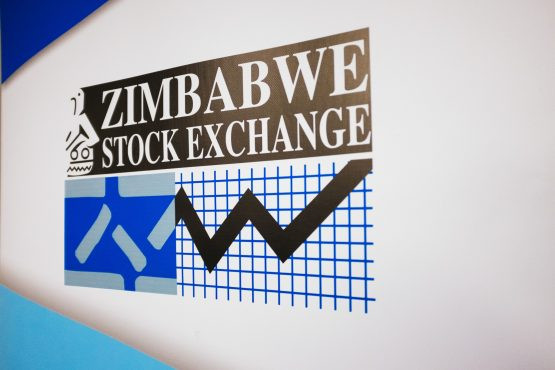
EFFECTIVE September 1, the United Kingdom will enforce a new corporate criminal offence under the Economic Crime and Corporate Transparency Act 2023: The Failure to Prevent Fraud Offence.
This legislation marks a significant shift in global corporate governance, placing legal responsibility on large organisations to actively prevent fraud committed by individuals acting on their behalf.
For African corporates, particularly Zimbabwean firms with UK facing operations, correspondent banking relationships, or digital platforms, this is not just a foreign compliance issue. It is a strategic imperative.
As fraud becomes more sophisticated and transnational, regulators are demanding more than reactive controls. They expect proactive deterrence, embedded governance and demonstrable accountability.
The UK’s new offence is a clear signal: the age of passive compliance is over.
Understanding the offence
The offence applies when an “associated person” such as an employee, agent, subsidiary or contractor commits a fraud offence intending to benefit the organisation. Covered offences include:
Fraud by false representation;
- I rejected Zanu PF scarf: Burna Boy
- NMB workers take on employer
- Mbavara eyes to resurrect Matavire’s music legacy
- I rejected Zanu PF scarf: Burna Boy
Keep Reading
Fraud by abuse of position;
Failure to disclose information;
False accounting; and
Cheating the public revenue.
Crucially, this is a strict liability offence. Organisations can be prosecuted even if they did not authorise or know about the fraud. Liability arises from the absence of “reasonable procedures” to prevent such conduct.
The scope is limited to “large organisations”, defined as those meeting two of the following three thresholds: more than £36 million (US$48,7 million) in turnover, more than £18 million (US$24,3 million) in assets, or more than 250 employees.
Many Zimbabwean corporates, especially those operating regionally or with UK-linked subsidiaries, fall within this definition. The offence creates a legal bridge between Zimbabwean operations and UK enforcement, making it essential for local firms to understand and mitigate their exposure.
Reasonable prevention measures
To avoid liability, organisations must demonstrate that they had reasonable procedures in place to prevent fraud. These procedures must be:
Proportionate to the organisation’s size and complexity;
Tailored to specific fraud risks;
Actively implemented and reviewed; and
Embedded into governance and culture
For Zimbabwean firms, this means moving beyond policy documents and into operational reality. Fraud prevention must be integrated into enterprise risk management, internal audit and board oversight. It requires a shift from compliance as a silo to compliance as a strategic enabler.
Digital era: A new fraud frontier
Digital transformation has revolutionised African commerce, but it has also created new vulnerabilities. In Zimbabwe, the rise of mobile money, digital banking and e-commerce has exposed firms to cyber-enabled fraud, identity theft and insider collusion.
According to the National Prosecuting Authority, Zimbabwean businesses lost an estimated US$250 million in 2024 due to corporate fraud equivalent to nearly US$21 million per month.
Common schemes include embezzlement, false accounting and executive misconduct. The police have reported increasingly sophisticated commercial crimes, including fake robbery cases staged by employees and insider exploitation of financial systems.
Meanwhile, TransUnion’s H1 2025 report shows that fraud is now the top barrier to digital adoption across African markets, overtaking access and pricing.
In Kenya and Zambia, over 80% of consumers reported exposure to fraud in the past three months. These trends underscore the urgency for African corporates to align with global fraud prevention standards.
The UK offence creates a legal bridge between African operations and UK enforcement, especially for banks, fintechs and conglomerates with cross-border infrastructure.
The digital era demands dynamic fraud deterrence. Fraud prevention demands more than static controls, it requires intelligent, adaptive systems that evolve with emerging threats.
Organisations must embrace a multi-layered approach that integrates machine learning-based transaction monitoring to detect suspicious patterns in real time, alongside behavioural analytics that flag anomalies in user activity and operational behaviour.
These technologies enable proactive identification of fraud before it escalates. Equally critical is the deployment of secure digital identity verification frameworks, which ensure that only legitimate users access sensitive systems and financial platforms.
To complete the loop, real-time escalation protocols and automated audit trails must be embedded within the control environment, allowing for swift response to threats and transparent documentation of actions taken.
Together, these tools form the backbone of resilient fraud deterrence architecture, one that is essential for Zimbabwean enterprises navigating increasingly complex digital and cross-border compliance landscapes.
Ethical resilience
Compliance and risk practitioners in Zimbabwe must now become strategic architects of fraud prevention. This involves:
Conducting enterprise-wide fraud risk assessments;
Mapping exposure to UK operations and associated persons;
Implementing targeted anti-fraud controls;
Training staff and third parties on fraud awareness;
Establishing trusted whistle-blower channels; and
Engaging boards and executive leadership in governance
The UK offence demands a shift in mind-set from passive defence to active prevention. It also offers an opportunity: firms that demonstrate robust fraud deterrence can enhance their credibility, attract international partnerships and position themselves as leaders in ethical enterprise.
Legislative gaps
By adopting the below reforms, Zimbabwe can position itself as a regional leader in corporate governance and financial integrity.
A forward-looking legislative agenda that embraces global standards while addressing local realities will be instrumental in building resilient institutions and fostering long-term economic growth.
‘Failure to prevent fraud’ offence
To modernise corporate liability and deter fraudulent conduct, Zimbabwe should consider codifying a statutory offence for “failure to prevent fraud”.
This would hold companies accountable when employees or agents referred to as “associated persons” engage in fraudulent activities, unless the company can demonstrate that it had adequate prevention procedures in place.
Such legislation would mirror developments in jurisdictions like the UK, where corporate liability has been expanded to encourage proactive fraud prevention.
Read the full article on www.theindependent.co.zw
Mugwagwa is an economist and an expert in anti-financial crime compliance, governance and risk. This article was written on behalf of the Compliance Society of Zimbabwe. — [email protected]. These weekly New Perspectives articles, published in the Zimbabwe Independent, are coordinated by Lovemore Kadenge, an independent consultant, managing consultant of Zawale Consultants (Pvt) Ltd, past president of the Zimbabwe Economics Society and past president of the Chartered Governance & Accountancy Institute in Zimbabwe (CGI Zimbabwe). — [email protected] or mobile: +263 772 382 852.











